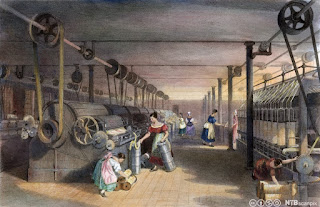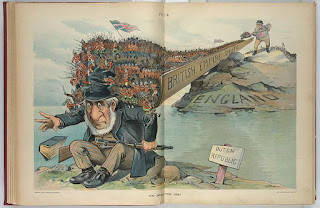How did the Industrial revolution impact society
How did the Industrial revolution impact society

Q :- How did the Industrial revolution impact society?
Answer :- The Industrial Revolution, spanning from the late 18th to the mid-19th century, brought about profound and far-reaching changes to societies across the world. This era marked a shift from agrarian economies to industrialized and urbanized ones, driven by technological advancements, changes in manufacturing processes, and shifts in societal structures. The impact of the Industrial Revolution on society was immense, touching nearly every aspect of human life.
1. Economic Transformation :-
One of the most significant impacts of the Industrial Revolution was the transformation of economic systems. Traditional agricultural economies gave way to industrial economies characterized by mass production and mechanization. This led to increased production efficiency, higher output, and the growth of markets both domestically and globally. The establishment of factories and the use of machinery allowed for the production of goods on an unprecedented scale, contributing to the rise of capitalism and the accumulation of wealth.
2. Urbanization :-
The Industrial Revolution triggered a massive migration of people from rural areas to urban centers in search of job opportunities in factories and industries. This rapid urbanization led to the emergence of overcrowded cities with inadequate infrastructure, housing, and sanitation. The living conditions in these cities were often deplorable, giving rise to social problems such as poverty, disease, and crime. Urbanization also led to the development of a new working class, separated from the land and concentrated in industrial centers.
3. Technological Advancements :-
Inventions and technological innovations played a pivotal role in driving the Industrial Revolution. Steam engines, textile machinery, and mechanized production processes revolutionized industries such as textiles, iron, and coal mining. The steam engine, in particular, facilitated the expansion of railroads and shipping, transforming transportation and communication networks and enabling the movement of goods and people more efficiently than ever before.
4. Social Class and Labor Conditions :-
The Industrial Revolution had a profound impact on social hierarchies and class structures. The emergence of factory owners and industrialists as the new wealthy elite contrasted starkly with the working class laborers who toiled in often harsh and unsafe conditions. The working class faced long hours, low wages, and little job security. Labor unions and worker movements began to form in response to these conditions, advocating for better working conditions, fair wages, and legal protections.
5. Impact on Family and Gender Roles :-
The traditional family structure underwent changes due to the Industrial Revolution. Previously, families often worked together in agricultural settings, but the shift to factory work led to a separation of work and home life. Men and women often worked outside the home in different capacities, leading to a division of labor by gender. Women and children were frequently employed in factories, facing exploitation and poor conditions. This period also saw the beginning of discussions around women's rights and suffrage.
6. Education and Social Reforms :-
The need for an educated workforce in rapidly changing industries prompted the growth of public education systems. Governments and reformers recognized the importance of education to foster a literate and skilled population. This era saw the establishment of compulsory education laws and the development of schools for working-class children. Social reform movements also gained momentum, addressing issues such as child labor, factory regulations, and public health.
7. Environmental Impact :-
The Industrial Revolution brought about significant environmental changes as well. Increased demand for resources led to the expansion of mining, deforestation, and pollution. Rapid industrialization contributed to air and water pollution, leading to health problems and environmental degradation. The long-term consequences of these practices would later spark discussions about sustainability and responsible resource management.
8. Global Impact and Imperialism :-
The Industrial Revolution had global implications, as European powers used their technological and industrial advancements to expand their influence through colonialism and imperialism. The quest for raw materials and markets for manufactured goods led to the colonization of vast territories. This had profound cultural, economic, and political impacts on colonized societies, shaping the modern geopolitical landscape.
In conclusion, the Industrial Revolution was a watershed moment in human history that transformed societies on multiple fronts. It reshaped economic systems, redefined social classes, altered family dynamics, spurred technological progress, and left a lasting imprint on the environment. While it brought about unprecedented economic growth and technological advancement, it also gave rise to a host of social, economic, and environmental challenges that continue to influence contemporary discussions and policies.


















